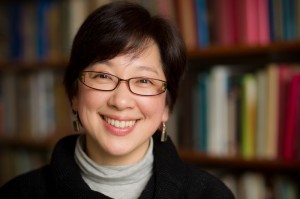Director chosen for Humanities Institute
 Associate Professor of Religion Mary Foskett has been named the first director of Wake Forest’s new Humanities Institute. The Institute, which was formally established last October, will support interdisciplinary scholarship, research initiatives and education in the humanities.
Associate Professor of Religion Mary Foskett has been named the first director of Wake Forest’s new Humanities Institute. The Institute, which was formally established last October, will support interdisciplinary scholarship, research initiatives and education in the humanities.
“Our aim is to support the multidisciplinary community of Wake Forest scholars and students engaged in humanistic inquiry and to underscore the importance of the humanities for meeting the challenges of our time,” Foskett said.
She and three other faculty members — Sally Barbour, professor of Romance languages; Dean Franco, associate professor of English; and David Phillips, associate professor of the program in humanities — have worked for the last three years to lay the groundwork for the Institute.
In December, Wake Forest received a $500,000 challenge grant from the National Endowment for the Humanities to help fund the Institute. Through donations, Wake Forest will match the NEH grant threefold, yielding a total of $2 million to endow the Institute.
“Developing the Institute with my colleagues has been a labor of love,” Foskett said. “Having been involved in its planning from the very beginning, I believe I have a deep understanding of the Institute’s mission and future plans. The humanities are at the heart of the University’s mission.”
Foskett, who joined the faculty in 1997, was Zachary T. Smith Professor of Religion from 2003 to 2006. She is currently serving as the faculty representative on the College Board of Visitors. She received the Kulynych Family Omicron Delta Kappa Award for Contributions to Student Life in 2006.
Foskett grew up on Long Island, N.Y., and graduated from New York University. She received a master’s of divinity degree from Union Theological Seminary and a Ph.D. from Emory University.
Wake Forest is an ideal institution to promote humanities research, she said, because of its size and nature. ”Wake Forest is really primed for these kinds of cross-disciplinary activities. Wake Forest attracts faculty who are very engaged scholars, and because of the University’s small size, we can create a more vibrant intellectual community that enables faculty across disciplines to come together.”
The Institute is already doing that through initiatives such as faculty seminars, reading groups, round-table discussions and research projects that bring together faculty and students from different areas.
For example, one group of faculty — from religion, theatre, political science, English and the Divinity School — has been meeting regularly to address conflicts in the Middle East and South Africa from their varied perspectives. Another group of faculty — from English, Romance languages, German and Russian, music and art — has been studying the relationship between science and the arts in the 18th century.
More than 45 faculty members already have been involved in research projects and creative activities during the planning stages for the Institute. The results of such collaboration have led to guest speakers and symposia on campus, new books and articles by faculty, and new courses.
The Humanities Institute will celebrate its founding with a two-day symposium in the spring. On March 18, Edward Ayers, historian and president of the University of Richmond, will give a keynote address on new directions in humanities research.
The next day, New York Times columnist Stanley Fish will give a talk on the humanities, academic freedom and liberal education, followed by a panel of Wake Forest faculty respondents. Fish is also the Davidson-Kahn Distinguished University Professor of Humanities and Law at Florida International University.
— By Kerry M. King (’85), Office of Communications and External Relations
Categories: University Announcements
